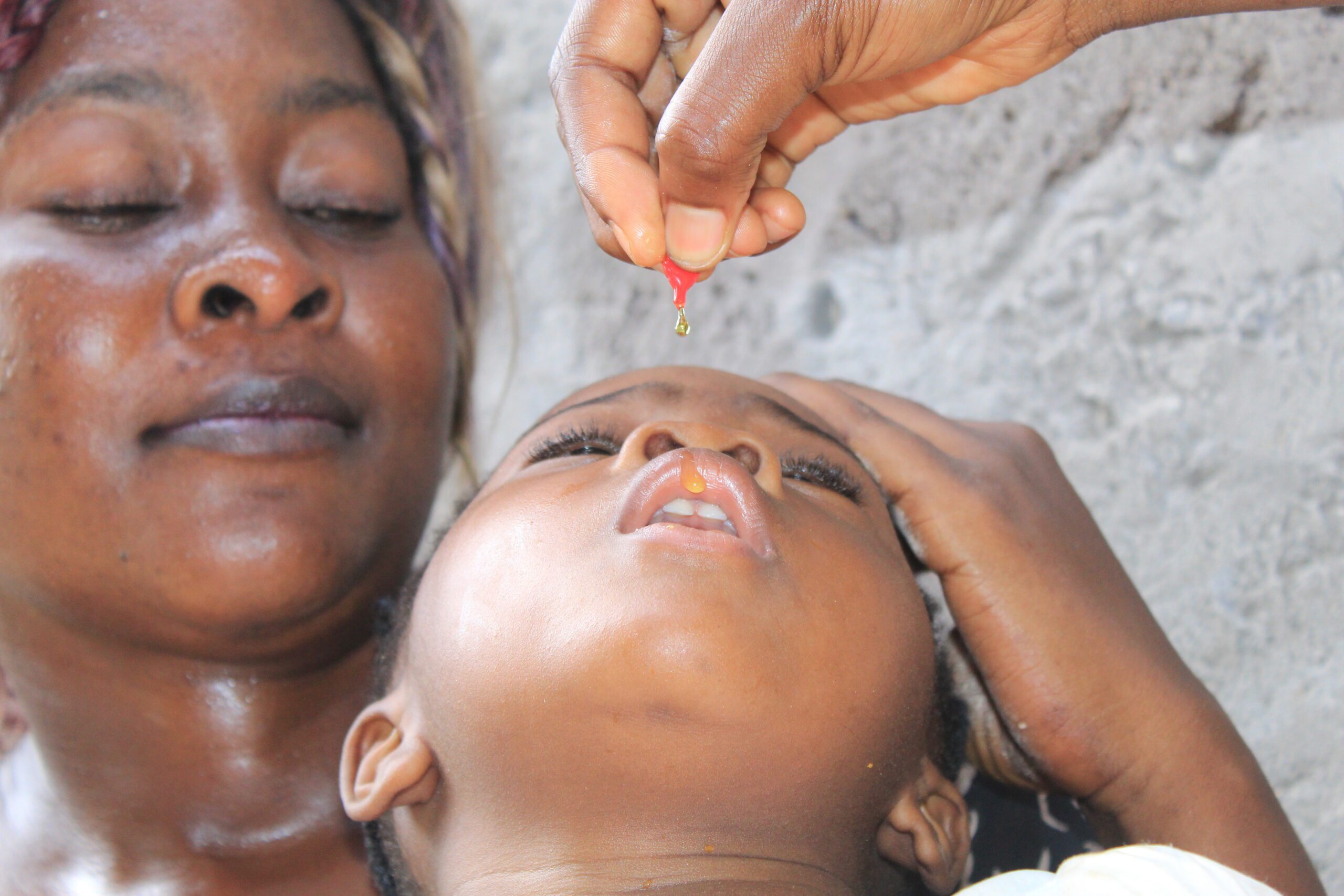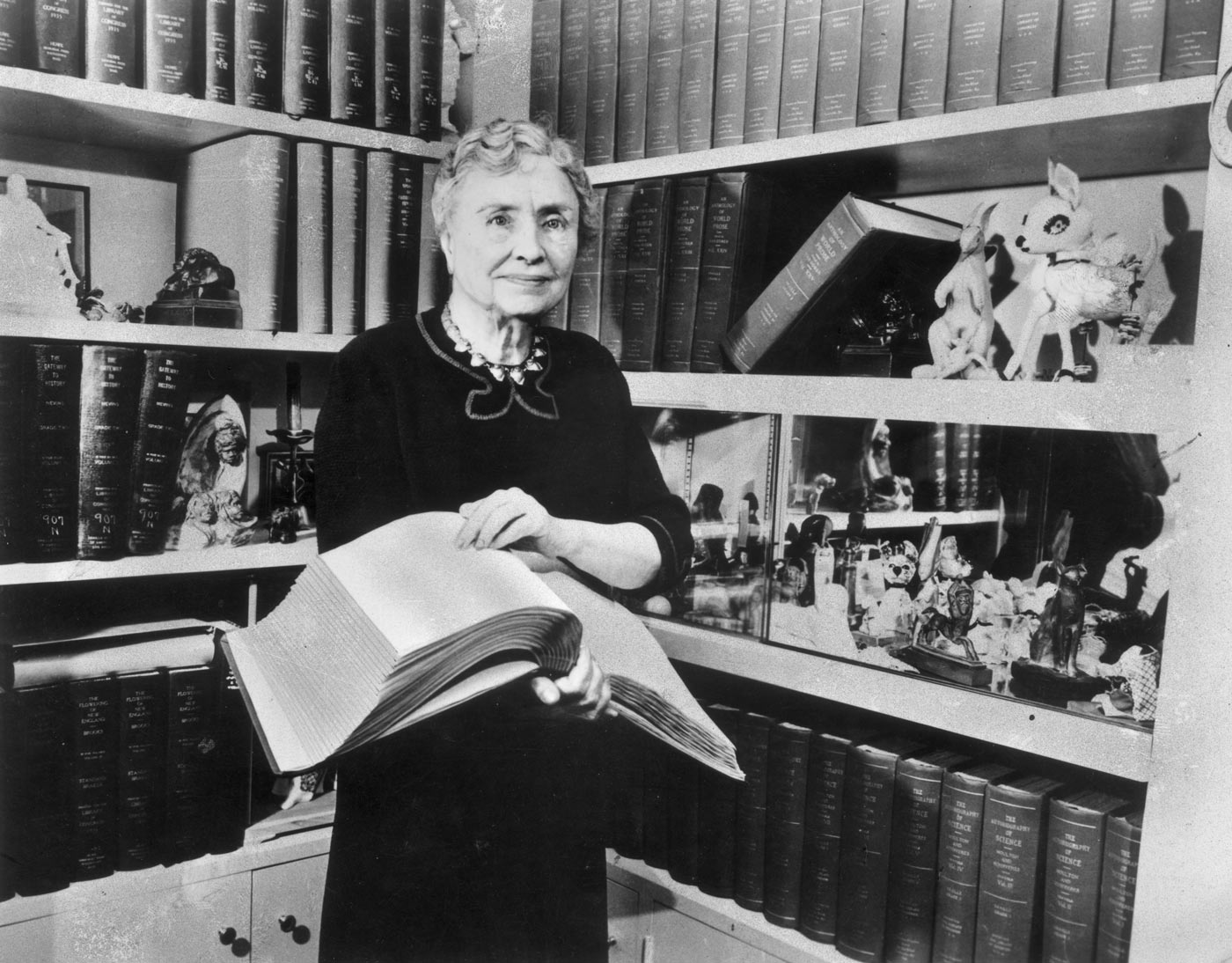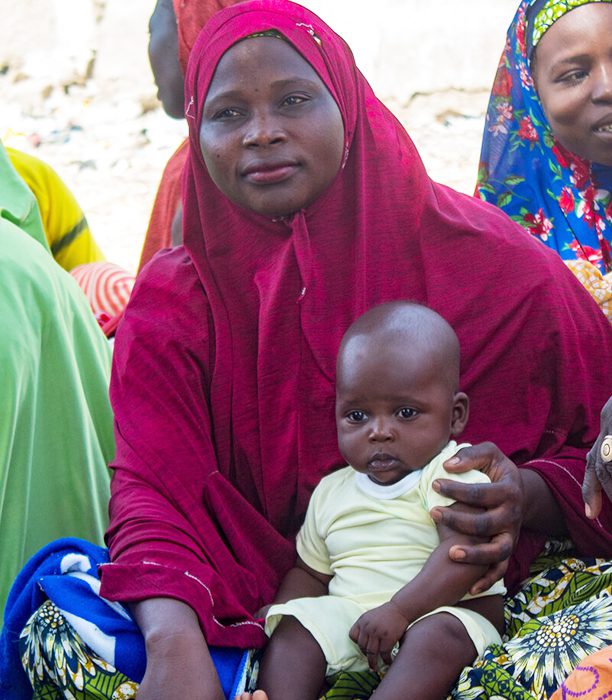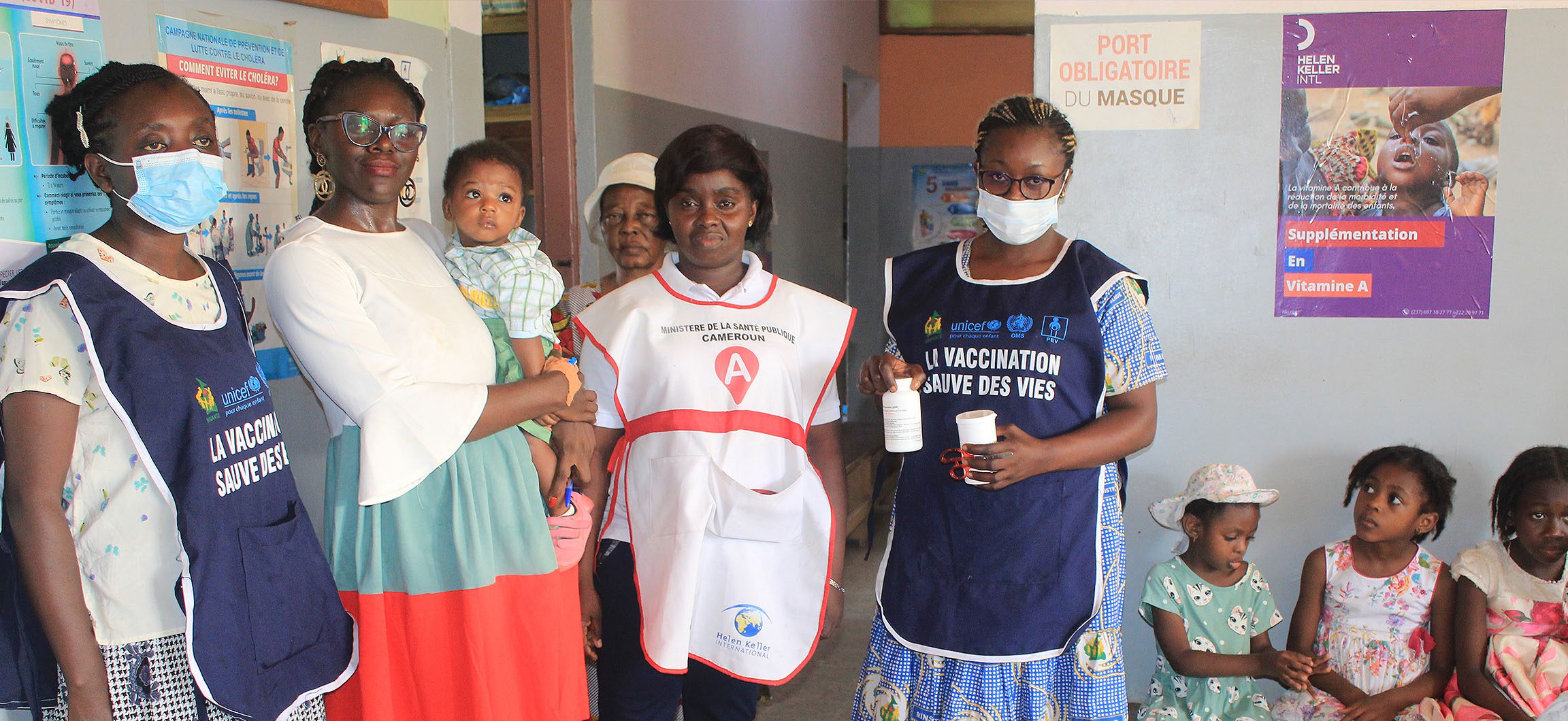
Going the distance to ensure lifesaving vitamin A
It’s a bright and sunny day in Mbalmayo, Cameroon, and youthful laughter fills the air. There’s joy in children’s voices as they call to one another playfully, sharing stories of their activities at school.
I know the importance of vitamin A, how it strengthens the bones of children, promotes their growth, and fights against diseases…
Pamela Dian
Muriel, Joyce, and Kim, aged five, three, and seven months respectively, live in this lively neighborhood with their mother Pamela Dian, 38. Pamela recalls joyful moments like these from her own childhood, and hopes her daughters can enjoy their young years in the best possible health. As someone who has experienced her health challenges herself, Pamela wishes to protect her girls however she’s able. That includes taking steps to ensure they receive the protections vitamin A delivers, even if it means traveling to a health clinic a long distance from home.
“I know the importance of vitamin A, how it strengthens the bones of children, promotes their growth, and fights against diseases,” Pamela explains.
A single dose means better health
Pamela knows that vitamin A is essential to build clear vision and strong immune systems. With strong immune systems, her daughters are more easily able to fight off diseases like the flu, colds, or diarrhea. Without, these seemingly ordinary diseases can have grave effects on a child. Just a single capsule of this powerful micronutrient, every six months until age five, can help ensure good health.
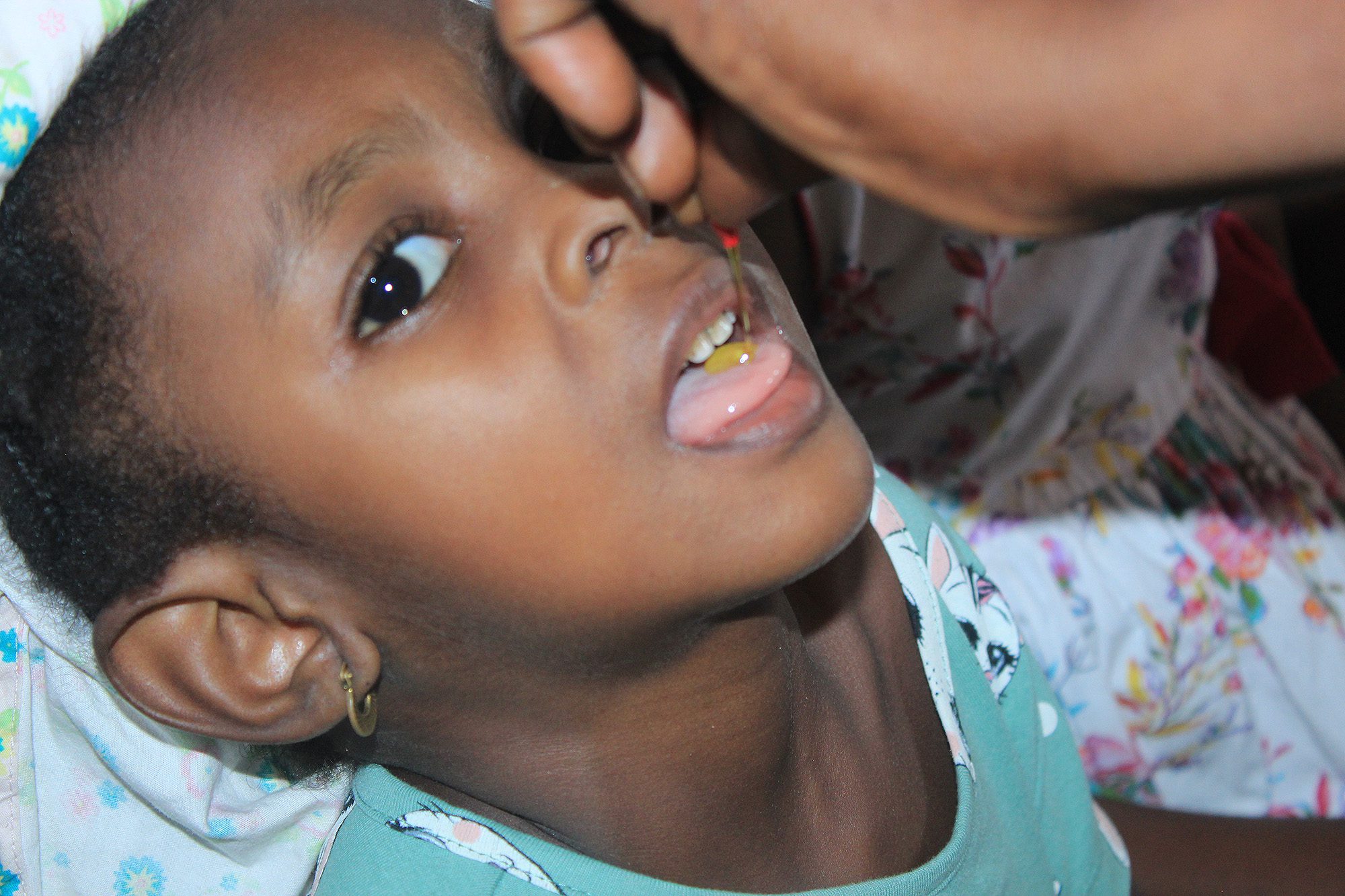
When Pamela learned that healthcare workers were coming to her community to distribute vitamin A, a partnership between Helen Keller and Cameroon’s Ministry of Health, she made every effort to be at home. Yet despite careful planning, Pamela and her daughters missed the team’s knock on their door. Determined, Pamela, Muriel, Joyce, and Kim journeyed to the nearby Mbalmayo Public Health Center to make sure they received the vitamin A and deworming medications they missed.
I could not let this opportunity pass me by… Vitamin A supplementation is very important in the lives of children.
Pamela Dian
“I could not let this opportunity pass me by,” she explained. “I really hope such campaigns are frequently launched so that our children stay healthy. Vitamin A supplementation is very important in the lives of children. That I know for a fact.”
Micro but mighty
Critical nutrients like vitamin A have never been more crucial than now. Today millions of children worldwide lack access to good health and nutrient-rich foods, further exasperated by the lingering impact of COVID-19, combined with climate crises and the war in Ukraine and local conflicts. Affordable healthcare and nutritious foods are becoming harder to access and afford, causing further stress to families like Pamela and her children.
According to GiveWell, vitamin A supplementation is one of the most cost-effective interventions with the greatest impact on reducing mortality. If administration starts at six months and continues through 59 months of age, vitamin A supplementation reduces infant and child mortality by nearly 25%.
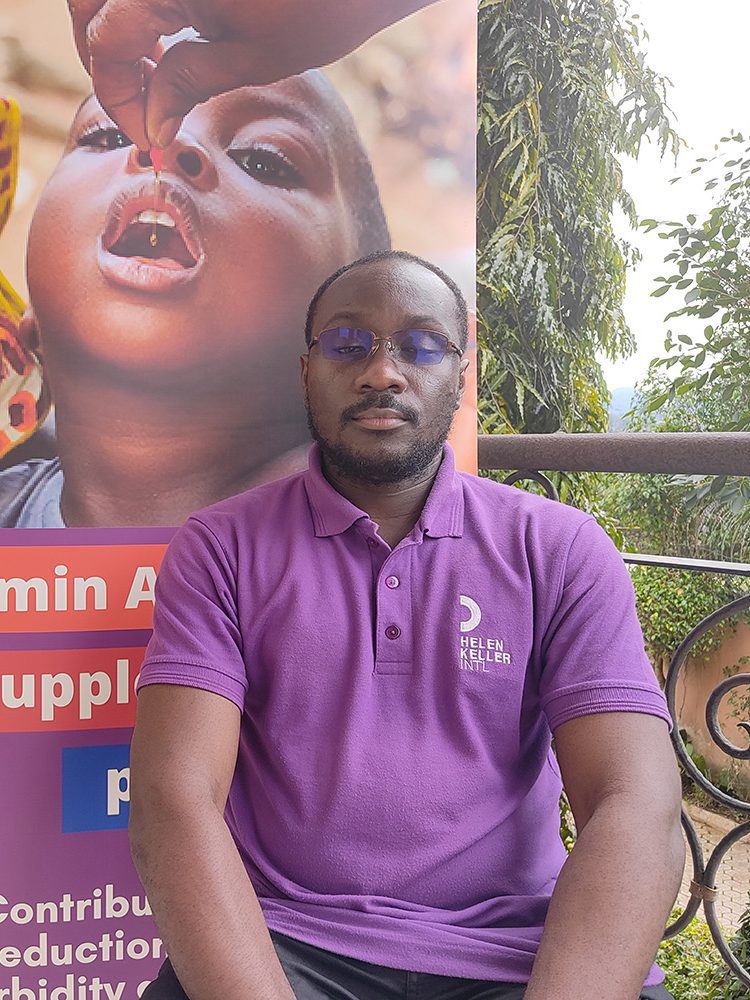
In Cameroon, vitamin A deficiency affects a third of children aged under five. Yet, Helen Keller has helped to decrease that number dramatically. Over the past two decades, community health workers have gone door-to-door, consistently reaching more than 80% of children. “In 2021, with the support of Helen Keller Intl and our generous partners, more than 2 million children, aged six to 59 months, received vitamin A in Cameroon,” says Dr. Steve Ahanda, project manager for vitamin A supplementation at Helen Keller.
With Minestries of Health and trusted partners, Helen Keller remains committed to supporting the vision, health, and wellbeing of children in desperate need. Muriel, Joyce, and Kim are just three of the nearly 15 million children we support with Vitamin A in 11 African countries each year.
